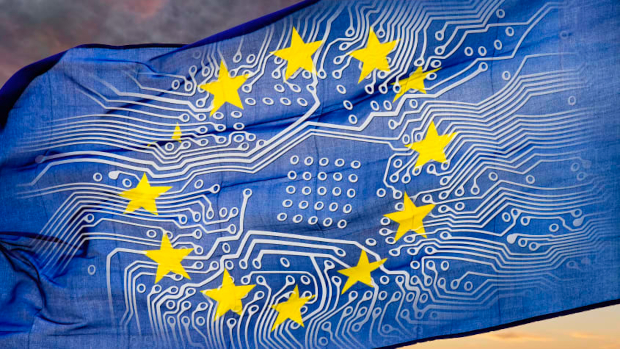
Europe has a long way to go when it comes to technological sovereignty
Writing some reports, recently, on companies working in two very interesting fields – one theoretical and hoping to explode out of the lab, the other already commercialised but still at the cutting edge – I was impressed that some Irish companies, albeit small ones, were working in areas on the frontier between the technology of today and that of tomorrow.
Lacking a crystal ball, I am unable to say if any of the companies I was looking at will become giants in the future, or even if the sectors that they operate in will grow, but their very existence was cheering. Let’s face it: taking a punt on future technology is something that has been obvious by its absence in Europe in recent years. Yes, Europe as a whole develops a wide range of technology products and services, but when it comes to leading its evolution the ground has been ceded to the US and, more recently, China.
France’s president, Emmanuel Macron, has been banging this drum for the last few years, arguing that Europe needs to free itself from its utter reliance on technologies developed elsewhere in the world. For instance, speaking last month during a visit to the Netherlands, Macron laid out his thinking by saying Europe must develop an industrial policy or else face serious consequences.
“We have American and Chinese technologies, which are a risk for us”, he said, warning that jobs “will be destroyed”, and, ultimately, “we will be in a situation where we will no longer be able to decide for ourselves”.
It’s not just the EU, either. Speaking yesterday on BBC Radio Four’s morning news broadcast Today, Hermann Hauser, who co-founded Acorn and, therefore Arm, had plenty to say. After taking a swipe at Brexit, Hauser went on to say that Britain was lagging behind the US, China and the EU in semiconductors. How can this be the case when Arm, which is ultimately a British company, is arguably the world’s most important chip designer? Simply, because the country lacks significant semiconductor manufacturing facilities, having left erstwhile giants such as Ferranti to wither on the vine during the Thatcher era.
How well the EU is doing on this front is open to question, though. Certainly, Netherlands-based ASML, which manufactures the lithography machines used to manufacture chips, is of global importance, but Europe’s capacity to design and manufacture semiconductors is more limited than it ought to be. Looking beyond chips, Europe has dropped the ball on hardware development and manufacturing, internet services and even, to some extent, software.
At the same time, the US and China are now engaged in a trade war, albeit a low key one at the moment, with technology very much at its centre. As a result, standing still is not a serious option.
In truth, total technological sovereignty is unachievable, and would be unwelcome anyway, given the breadth and depth of interconnectedness, both intellectually and in terms of supply chains. Nonetheless, the absence of a European Apple, Google or Microsoft demonstrates that, over the past four decades, we have let successive waves of technological development pass us by and confined our efforts to small niches. A shift in thinking, and indeed policy, will be needed if this is ever to change.






Subscribers 0
Fans 0
Followers 0
Followers